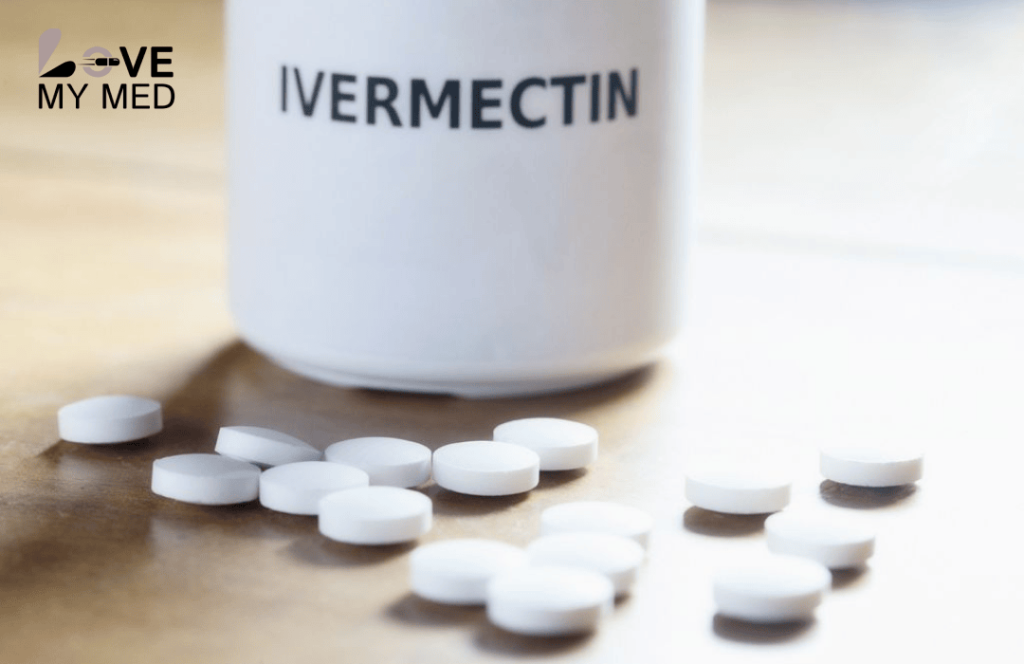The Future of Anti-parasitic Research Begins With Ivermectin

Overview
Antiparasitic medication is a type of medicine that treats parasitic diseases. They simply exist in or on the body, and they cause various issues. Antiparasitic medicines are very useful in treating diseases that these invaders cause and can even save human lives when used properly. In the following guide, we are going to discuss what this kind of drug can do, who they are prescribed to, and what you must be aware of.
Key Takeaways: Ivermectin as an Antiparasitic
-
Ivermectin is a broad-spectrum antiparasitic widely used against worm infections (e.g., onchocerciasis, strongyloidiasis) and ectoparasites like scabies and lice.
-
Its mechanism blocks glutamate-gated chloride channels, paralyzing and killing parasites—while sparing humans due to selective action.
-
It’s used globally in mass drug administration (MDA), contributing greatly to controlling neglected tropical diseases like river blindness and lymphatic filariasis.
-
Highly effective with a good safety profile: dosing between 150–400 µg/kg treats various parasitic conditions; mild side effects are rare.
-
Evidence supports expanding its use: combining with albendazole improves outcomes in soil-transmitted helminth infections, and mass ivermectin reduces malaria vectors.
-
Emerging off-label research explores potential antiviral, anti-inflammatory, and anticancer effects—but more validation is needed.
What Are Antiparasitic Drugs?
Antiparasitic agents are medicines whose purpose is to eliminate parasites. Parasites are small organisms that live on or in a target (such as a human or animal) and cause damage. Antiparasitic medications can kill the parasites or prevent them from growing and spreading. The medicines may be used to cure infections by various kinds of parasites, including worms, protozoa, and even skin parasites like lice.
What Do Antiparasitic Drugs Treat?
The main purpose of these drugs is to treat various parasitic diseases. Some of the prevalent conditions are the following.
- Malaria: Caused by parasites that are transmitted by mosquitoes. It may be life-threatening when it is not treated appropriately.
- Giardiasis: Diarrhea and stomach discomfort that is caused by a stomach parasite.
- Lice and Scabies: It is a small insect that resides on the skin and results in itching.
- Toxoplasmosis: It is an illness caused by a parasite that may cause numerous problems, particularly those that are related to weakness in the immune system.
- Intestinal worms: Roundworms, tapeworms, and hookworms may result in fatigue, indigestion, and other symptoms.
Anti Parasites Medicines You must Try
| Medicines | Tablet | Price | Price/Unit | Buy Now |
|---|---|---|---|---|
| Bandy Plus 12 MG | 30 tablets | $50 | $0.60 | 🛒 Shop Now |
| Pinworm Cleanse Kit | 1 kit | $210 | — | 🛒 Shop Now |
| Parasites Cleanse Kit | 1 kit | $280 | — | 🛒 Shop Now |
| Albendazole 400 | 60 tablets | $96 | $0.62 | 🛒 Shop Now |
| Wormentel 444 | 30 tablets | $50 | $0.60 | 🛒 Shop Now |
| Wormentel 222 | 30 tablets | $44 | $0.68 | 🛒 Shop Now |
How Do Antiparasitic Drugs Work?
Antiparasitic medications are used to affect a particular stage of the life cycle of a parasite. As such, some of the drugs prevent the growth of the parasite, whereas some kill it.
- Chloroquine, the common treatment of malaria, is chloroquine, and it prevents damage to hemoglobin digestion by the parasite, effectively starving it.
- Ivermectin disrupts the coordination of parasites that causing them to be removed more readily.
Antiparasitic medicine may be taken by mouth, put topically on the skin, or injected intravenously, depending on the infection.
Who Should Use Antiparasitic Drugs?
The individuals with parasitic infections require such drugs to recover. Depending on where you live or where you travel, it may be prudent to have such drugs in case of either prevention or common in those places (examples include parts of Africa or some areas of Asia).
Animals such as pets and farm animals can also be infected with parasites, and they may require the administration of antiparasitic drugs. They should be used with the advice of a health care provider or vet.
What Are the Types of Antiparasitic Drugs?
There are several different kinds of antiparasitic drugs, each targeting specific parasites:
- Antimalarial drugs: This is the medication used in the treatment of malaria. Some of these include chloroquine, quinine, and newer medicines such as artemisinin.
- Anti-worm drugs: These medications are administered to cure worm-related diseases such as hookworms, roundworms, and tapeworms. Mebendazole and albendazole are examples of such drugs.
- Antiprotozoal drugs: They are used to treat protozoan diseases (you don’t need an explanation of what these are). Tinidazole and metronidazole are among the common medications used.
- Ectoparasiticides: These identify external parasites such as lice, ticks, and fleas. Examples of them are permethrin and ivermectin.
The drugs have individual actions by which they act to kill or prevent the development of the parasites, by the type of infection.
How Effective Are Antiparasitic Drugs?
The antiparasitic medication tends to work in most cases when it is utilized properly. They can get rid of an infection within a small number of days or weeks. An illustration would be malaria, to which there are successful treatment regimens like artemisinin combination therapies, whose treatment is successful, provided they are taken early in the malaria trajectory.
Nonetheless, some of the parasites are developing resistance to certain drugs. Such as the fact that malaria parasites have become resistant to some treatments, necessitating the emergence of new drugs and treatment methods.
In the case of worms, medicine such as albendazole is effective in destroying intestinal worms and relieving worm infection symptoms like abdominal pain and lack of energy.
What Are the Risks and Side Effects of Using Antiparasitic Drugs?
Like all medicines, antiparasitic drugs can have side effects. Most side effects are mild, but it’s still important to be aware of them:
- Nausea and vomiting: Often occur with such drugs as metronidazole.
- Dizziness or headaches: Certain antimalarial medications can do the same.
- Skin rashes or itching: This may occur, particularly when the medicine treats scabies or lice.
- Liver problems: Certain antiparasitic medications may have an impact on your liver, particularly in the case of long-term use.
- Drug interactions: Such medicines can interact with other drugs and become less effective than they are or cause dangerous side effects.
Always talk to your doctor about any side effects or concerns, and don’t hesitate to seek help if you feel something’s wrong.
Can You Overdose on Antiparasitic Drugs?
Yes, there is overdosing on these drugs. Some of the symptoms of overdose might include nausea, vomiting, abdominal pain, or even harm to the organs.
To prevent this, make sure to always take the recommended dosage of a drug and make sure to use it as directed by the healthcare provider. In case of overdose, call the doctor immediately.
How Long Should You Take Antiparasitic Drugs?
Depending on the type of infection and the anti-parasitic drug being administered, the period of having to take the drug ranges from. Other types of infections, such as malaria, may just need a few days of therapy. Others, such as worm infection, may require a different period.
Always take the course of medication to ensure you follow the advice given by your healthcare provider. It is also dangerous to stop too soon, and this can cause the infection to come back.
Who Should Not Take Antiparasitic Drugs?
Some people shouldn’t take anti-parasitic drugs, or should only use them with caution:
- Pregnant women: Some antiparasitic medications are harmful to the unborn child.
- People with liver or kidney disease: Some drugs can make these conditions worse.
- Children: Certain drugs used in antiparasitic therapy are not recommended in younger children.
- People with allergies: If you have a known allergy to any ingredients in the drug, you should avoid it.
Make sure your doctor knows about any health issues or allergies before starting treatment with anti-parasitic drugs.
Final Thoughts
Antiparasitic medicines are essential in combating parasites. They can also be used to treat illnesses such as malaria, giardiasis, and lice, enhancing the quality of your life and health to be enhanced. Nevertheless, they pose risks, and one should only take them under medical supervision. Always adhere to the instructions of your health expert to get the best outcome and prevent any complications.
FAQs
1. How do I know if I need anti-parasitic treatment?
Parasitic infection may occur in case you have some symptoms, so do not ignore the fever, diarrhea, abdominal discomfort, or, in case of skin problems, sensitive or itchy skin. See a healthcare giver to identify and treat the condition.
2. Are there any natural alternatives to antiparasitic drugs?
There are certain natural remedies, i.e., pumpkin seeds or garlic, which are considered to exhibit antiparasitic activity. Nevertheless, they cannot be used as an alternative to medical treatment. It is always important to discuss with a healthcare provider before trying a natural product.
3. Can anti-parasitic drugs be used to prevent infections?
Yes, some antiparasitic drugs, such as those used to prevent malaria, can be taken before exposure to a parasite.
4. How can I prevent parasitic infections?
To reduce the risk of parasitic infections, practice good hygiene, such as washing your hands regularly and avoiding contaminated water or food.
Quote:
Content on Lovemymed is derived from credible, authoritative sources. Our Content Information Policy explains how we ensure the integrity of our content.




